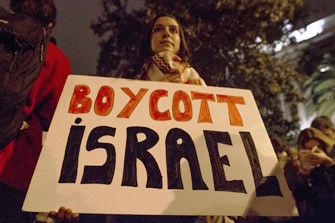Publications
Memorandum No. 169, Tel Aviv: Institute for National Security Studies, September 2017

The delegitimization phenomenon is a new national security challenge for Israel, and once identified as such, the intelligence community must provide an appropriate response. Intelligence agencies must assess it, as they do all other strategic phenomena that are based on a changing and learning system, and point out the varying dynamics to decision makers and to those involved in operative actions. The intelligence agencies must determine whether delegitimization is one monolithic challenge or whether it is a range of challenges, some of which do not oppose the existence of Israel but rather criticize its national policies. This issue reveals the ethical tension facing the intelligence community: on the one hand, it must deliver the goods asked of it (in other words, it must serve the government’s policy), but it is also required to challenge the worldview of the leadership. There are those who claim that putting all of those who oppose Israel in the same basket of delegitimization serves the interests of those who are not interested in initiating a peace process; the intelligence community must be aware of this claim.


